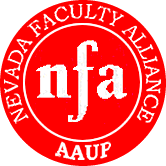Then, in late fall, the Governor made a decision to take another $90 million from the PEBP budget, mainly by following some draconian recommendations from the SAGE Commission. Included were recommendations to stop all subsidies for those (including those already retired) who are Medicare eligible, cut the subsidy in half for those already retired but not Medicare eligible, and to offer no subsidy at all for those who might retire after June 30 of this year. He also wanted to dramatically increase the rates paid for all active participants and retirees in the plan.
In the face of these recommendations, a Benefits Coalition was formed made up of active employee and retiree groups who would be affected by these changes. This group met weekly, every Tuesday at 10 am, for discussion and strategy sessions. The group was, I think, quite effective in dealing with the issues concerning PEBP, and to some extent the PERS issues as well.
The set of draconian recommendations made by the Governor were rejected by the money committees and the two houses in strong bi-partisan votes, and instead SB 415 was passed containing the needed subsidy amounts for actives and retirees to sustain the changes made by the PEBP Board. (SB 415 was vetoed yesterday by the Governor, and will be overridden, we assume, today.)
Then came the benefits reform effort that culminated in SB 427. This bill incorporated changes in PERS, PEBP, and the collective bargaining law for local governments. I will only discuss PEBP changes, since that is all that impacts NSHE professional employees.
Originally there was discussion of moving the PEBP threshold for eligibility to 15 or 20 years (PEBP Board signed on for 15 and the LV Chamber was pushing 20), but we countered with 10, citing problems in hiring mid-career people with such a long wait to achieve a subsidy. Also, there was some discussion of making the change apply to current employees. Further there was discussion of removing all subsidies for new hires, or at least for Medicare eligible ones.
In the end, all ideas except the threshold change for eligibility were rejected, and 15 years was adopted by those doing the negotiating, but only in a prospective manner, meaning it will impact only new hires. (Senator Coffin made a valiant effort to get NSHE the ten year threshold, but it failed, leading him to vote again the bill in committee and in the Senate.) Thus we now will have a two class professional employee group: those current employees eligible for retirement subsidy after five years of employment and those new hires eligible only after 15 years of service.
NFA will in future sessions make an effort to get the 15 year threshold changed, or we may seek a way to purchase credits, as can be done with PERS (up to five years). If, as predicted, this new provision does cause problems with hiring, the System might consider setting up a supplemental health plan within NSHE, or take other steps to deal with the problem. (Editor's Note: The Faculty Senate Ad Hoc Committee on Health and Wellness Benefits is considering ideas on how UNLV might do this.)
Overall, given the circumstances, we did better than we might have expected in protecting the basic structure of PEBP, even if the health plan for the next two years is not as good as it currently is. After all, State revenues are down over 40% below what was once projected, so we could not expect to escape unscathed.
(Editor's note:) Thanks to all -- faculty, administration, staff and classified -- who paprticipated in the campaign to save PEBP. Given how steep a hill we had to climb, the unfavorable media coverage of this issue, and the financial situation of the state, these efforts clearly made a difference in the outcome.






No comments:
Post a Comment